Epilepsy seizure alert dog is credited with owner being seizure-free for five years

A woman who contemplated suicide as epilepsy ruled her life is celebrating being five years seizure-free. Brogan Evans has no doubt that former epilepsy seizure alert support dog, Wadsley, has transformed and even saved her life
Written by Tracy Walker, communications officer, Support Dogs – for autism, for epilepsy for disability
Before being partnered with the loveable red fox labrador, by the national Support Dogs charity, Brogan Evans, from Ellesmere Port, was having up to 14 seizures a day. She couldn’t walk up or down stairs, shower or bathe unsupervised due to the possibility of injuring herself during a seizure, and she never left the house unaccompanied. She even refused to eat food at one point—so scared she might choke.
“The way I lived with epilepsy, that was the lowest I have ever been in my entire life—I didn’t want to be alive,” said Brogan.
But that was before Wadsley came into her life. Wadsley was trained by Support Dogs to give a 100 percent reliable 48-minute advance warning of an oncoming seizure—a game-changer which gave Brogan her life back.
Brogen was even able to return to the sport of rugby which she excelled at—with Wadsley sitting by the touchline and ensuring she was safe to continue at half-time. Brogan even recently went on a solo trip to Greece—something she wouldn’t have dreamt was a possibility ten years ago.
Brogan loves to drive, which had previously been ruled out due to her epilepsy.
Brogan recently organised a celebratory meal with 10 friends and Wadsley as guest of honour in a party hat, to mark her amazing seizure-free milestone—complete with cakes adorned with messages including ‘no longer at risk of holding a kettle’. Small but highly impactful milestones.
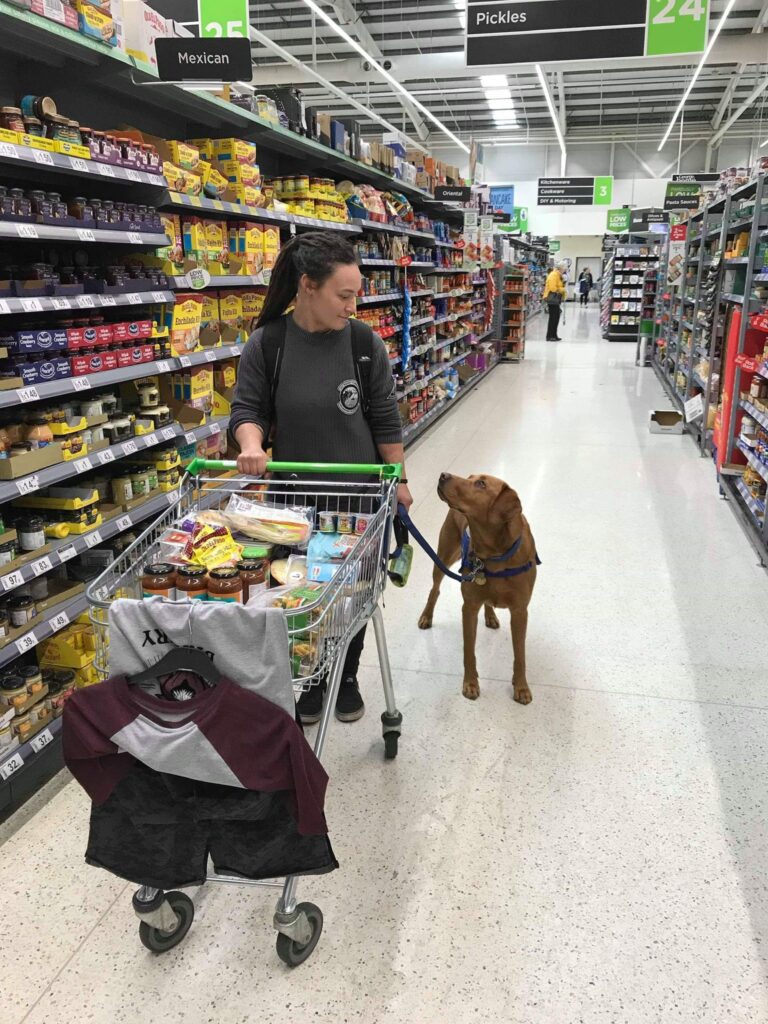
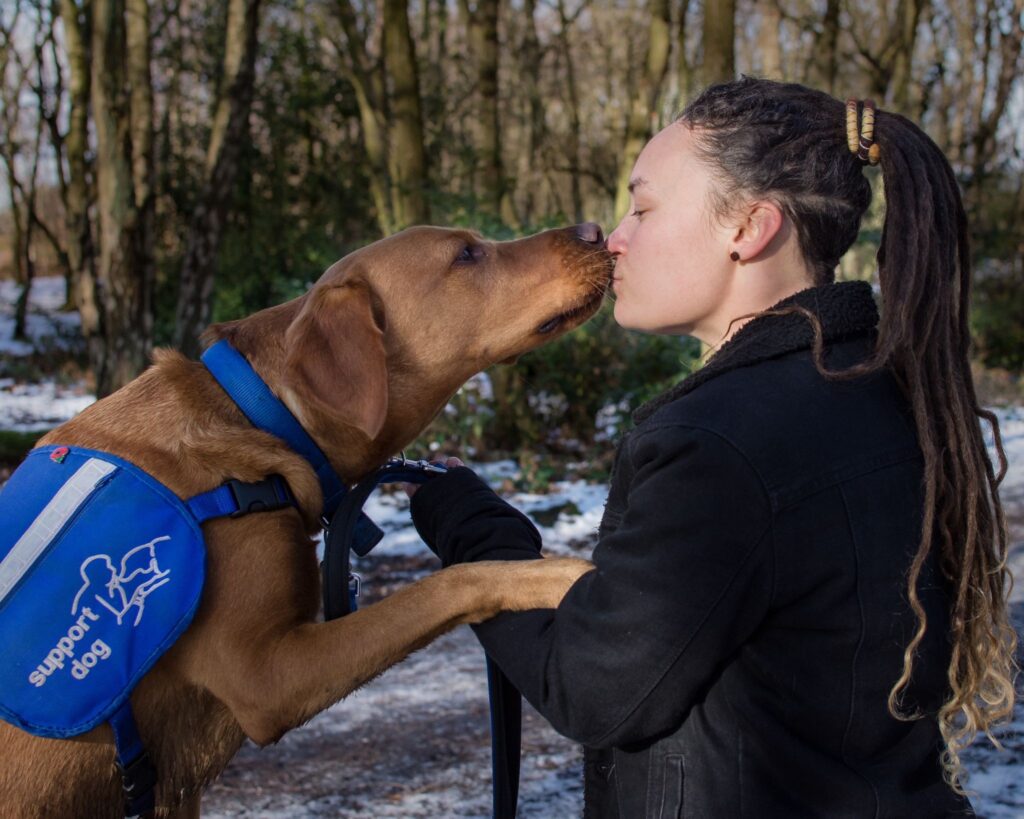
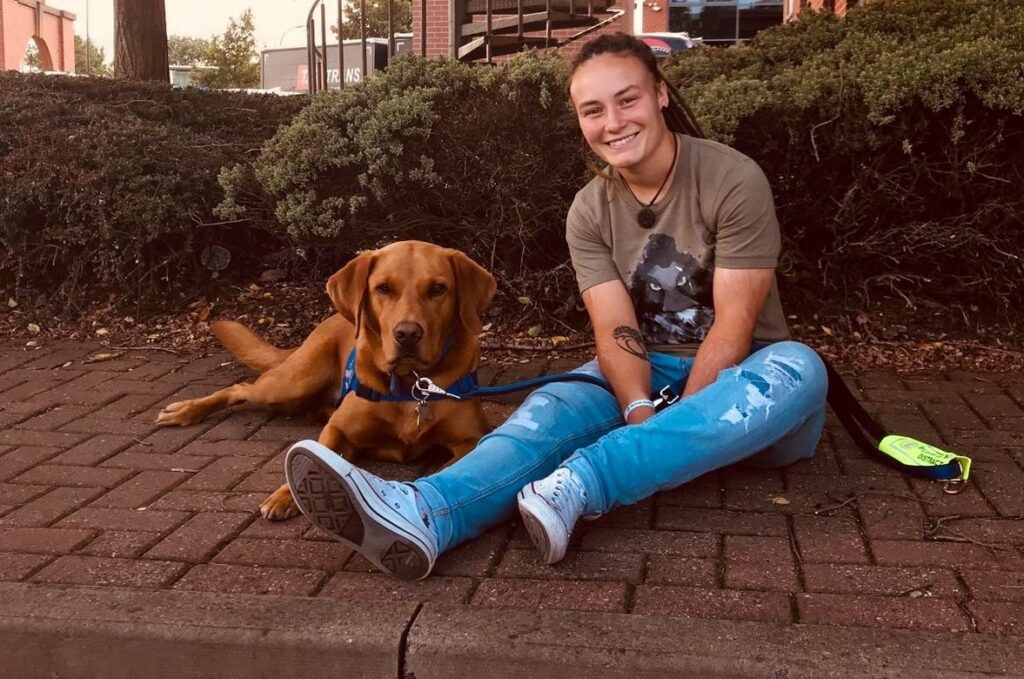
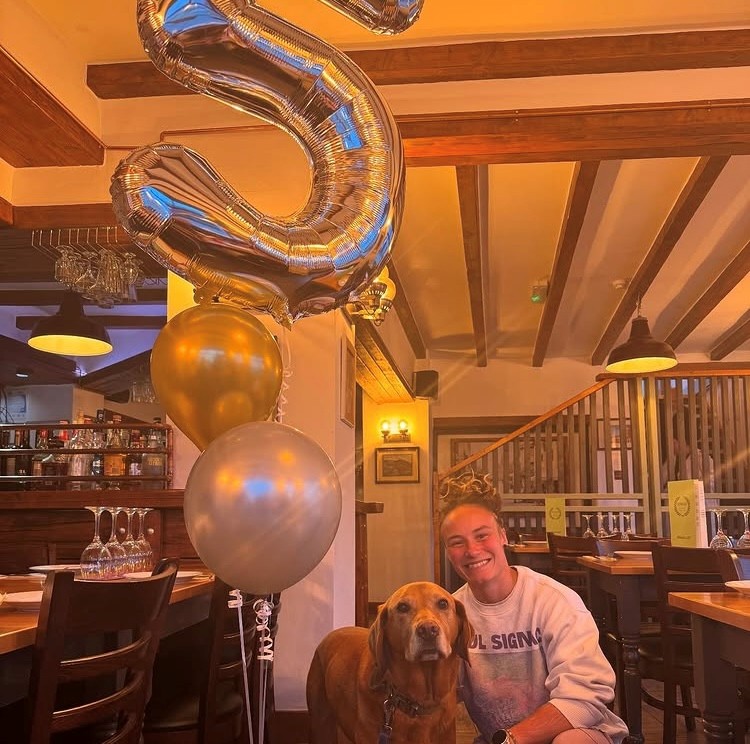
Brogan, who will mark her 30th birthday in September with a Ugandan safari with mum Ann, said:
“Everyone says that with having an epilepsy seizure alert dog you become less stressed. Without, you’d spend your entire life worrying about having a seizure. Wadsley changed all that. I even managed to get a job and some level of independence and quality of life back—that was all down to Wadsley.”
Once partnered with Wadsley eight years ago, not only did he alert to an oncoming seizure and enable Brogan to get to a place of safety, he also helped the number of seizures to reduce to 10 a month.
Brogan, who works as a self-employed neurodiversity life skills mentor, said the seizures completely stopped in June 2020, during lockdown.
“During Covid, the world was at panic, but I was calm. I learned how to look after myself better.”
Wadsley, now ten, retired as an epilepsy seizure alert dog three years ago, after Brogan had been seizure-free for two years, and he is now her beloved pet dog.
“I couldn’t imagine a world without my best friend—we are inseparable,” said Brogan, who sadly now partially uses a wheelchair following a spinal injury.
But never one to let life beat her, she believes she is the first person in the world to transition from standard rugby to wheelchair rugby at international level and hopes to compete in Rugby League World Cup for Wales next year.
Brogan developed epilepsy at the age of 17 and at its worst had up to 14 seizures a day. The cause was unclear, but she remembers sustaining a head trauma when she was 13, sustained during a back flip where she landed on her head and had to spend time in a neck brace. At the time she was given the all-clear, however after that she has suffered an array of problems and her hopes for a career in the Army as a dog handler had to be shelved.
“My life before Wadsley was miserable. I was depressed as hell,” says Brogan. “I was on medication but it wasn’t working—nothing was working. I knew what life was like before and I wanted that back. I couldn’t do anything. I couldn’t have a bath or a shower in case I had a seizure and drowned or fell and banged my head. I couldn’t cook or leave the house—so many things that people take for granted I wasn’t allowed to do any more. I missed the independence I had before epilepsy.”
Brogan applied to Support Dogs for a seizure dog when she was 20, but due to huge demand the programme was closed at that time, and she didn’t hear anything for two years. “Support Dogs was the last port of call for me. I had given up hope before someone from the charity rang me to invite me to attend their open day,” says Brogan.

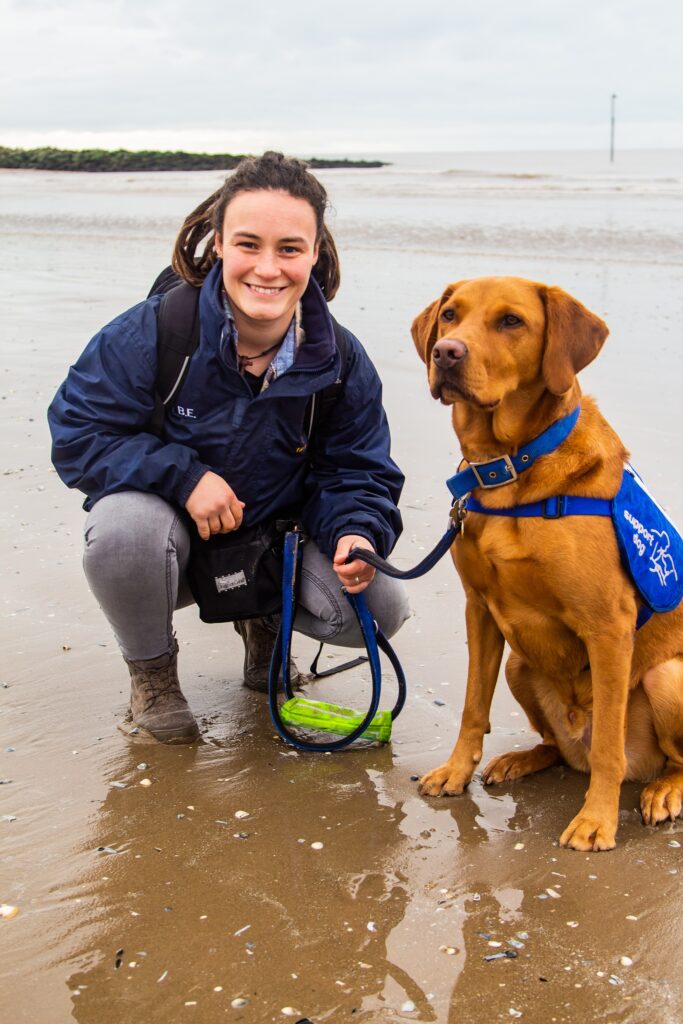
That phone call was the beginning of a completely new chapter of Brogan’s life. With the help of her Support Dogs’ instructor, Brogan and Wadsley began intensive training. Brogan says it was always easy to put her absolute trust in Wadsley as he never missed a seizure, right from the start.
“He picked it up so quickly. I met Kevin, Bodie and Wadsley, who were all prospective dog partners, and had three seizures while I was at the training centre and Wadsley knew something was wrong—he was staring intensely at me.”
Although she had grown up with dogs, Brogan found it difficult to adapt at first to being with a canine companion 24-hours a day, but gradually the pair formed a successful partnership, graduating in February 2019.
Praising the awe-inspiring work of Support Dogs, which train and provide assistance dogs to help autistic children as well as people with epilepsy or a physical disability, she said: “It’s incredible. I think I would still be having seizures right now if it wasn’t for Support Dogs, or I could be dead. My life changed because of Wadsley and the Support Dogs charity and I’ll never forget that.”
To find out more about the incredible work of Support Dogs, please visit www.supportdogs.org.uk or call 0114 2617800.


